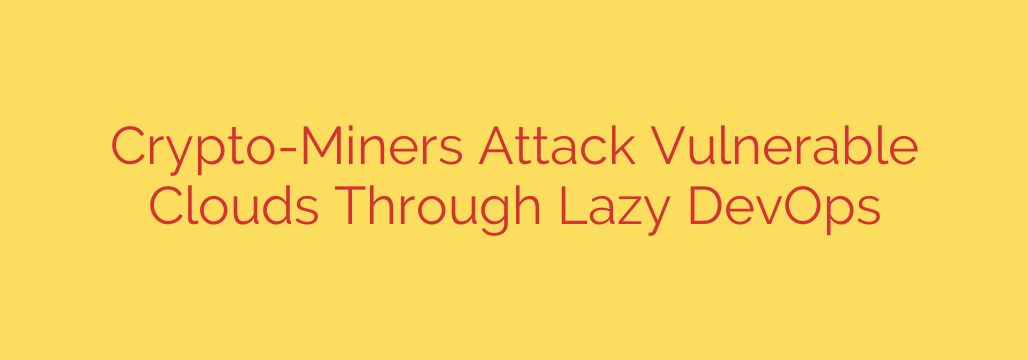
Cloud environments are facing a significant threat from attackers deploying crypto-mining operations. These malicious actors are actively exploiting vulnerabilities that often stem directly from suboptimal or “lazy” DevOps practices. The core issue lies in insufficient attention to security hygiene within the rapid pace of cloud deployment and management.
Attackers seek out systems with weak security postures. Common entry points include misconfigured cloud services, failure to update software or apply patches, default or weak credentials, and overly permissive access controls. When security is not deeply integrated into the development and operations lifecycle, gaps emerge that sophisticated attackers are quick to find and exploit.
Once a foothold is gained, attackers deploy software that uses the victim’s cloud computing resources to mine cryptocurrencies. This covert activity leads to substantial, unexpected costs for the affected organization due to increased resource consumption. Beyond the financial impact, these attacks can degrade system performance and serve as a stepping stone for further, more damaging breaches.
Protecting cloud infrastructure requires a shift towards proactive security. This involves embedding security considerations at every stage of the DevOps pipeline, often referred to as DevSecOps. Essential measures include implementing strong access controls, regularly patching systems, using automation for secure configurations, continuous monitoring for suspicious activity, and fostering a culture of security awareness among teams. By addressing the root causes related to relaxed security practices, organizations can significantly reduce their exposure to these financially motivated attacks and ensure the integrity and performance of their critical cloud resources. Robust security is not just an add-on; it’s a fundamental requirement for safe cloud adoption.
Source: https://go.theregister.com/feed/www.theregister.com/2025/06/03/illicit_miners_hashicorp_tools/








